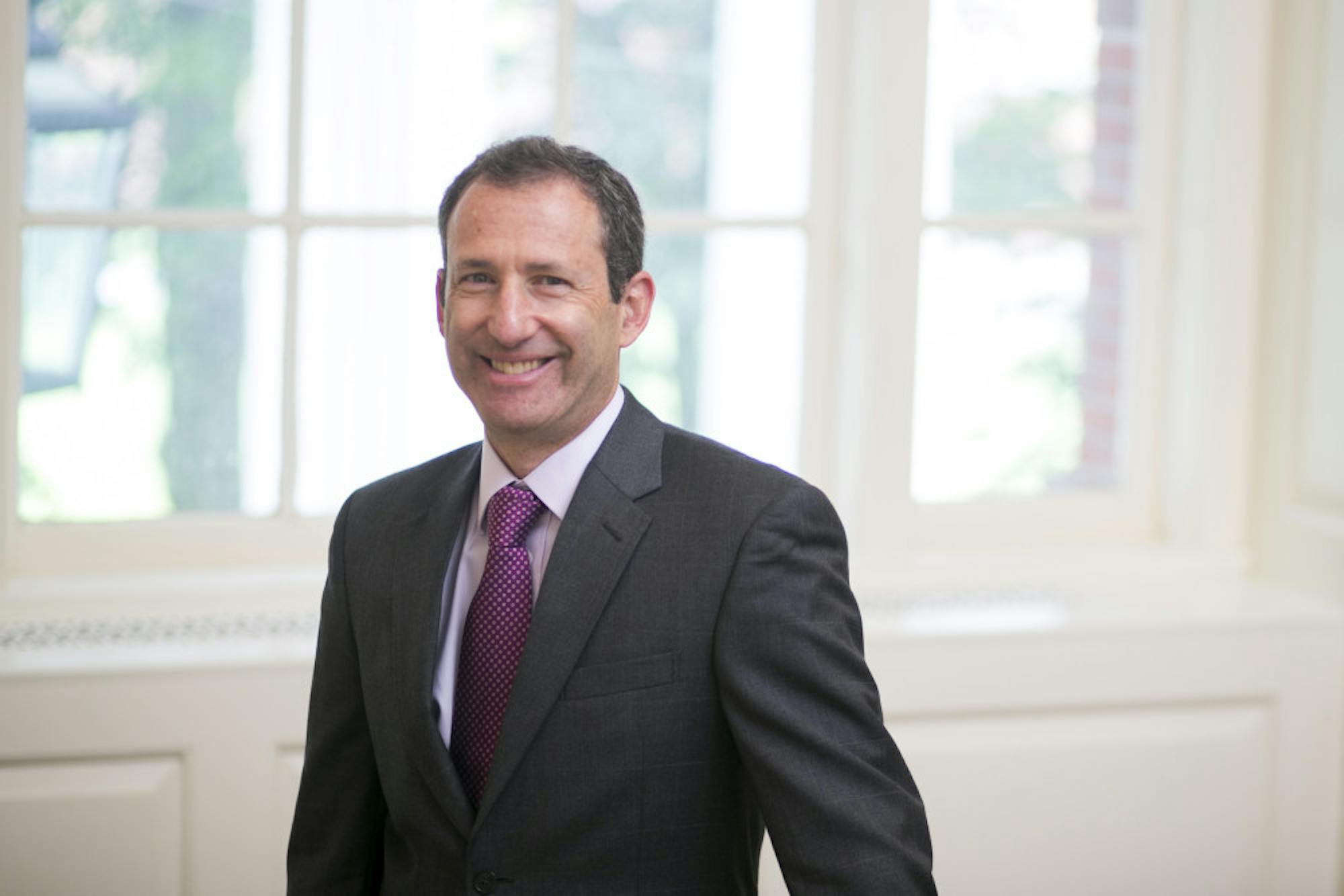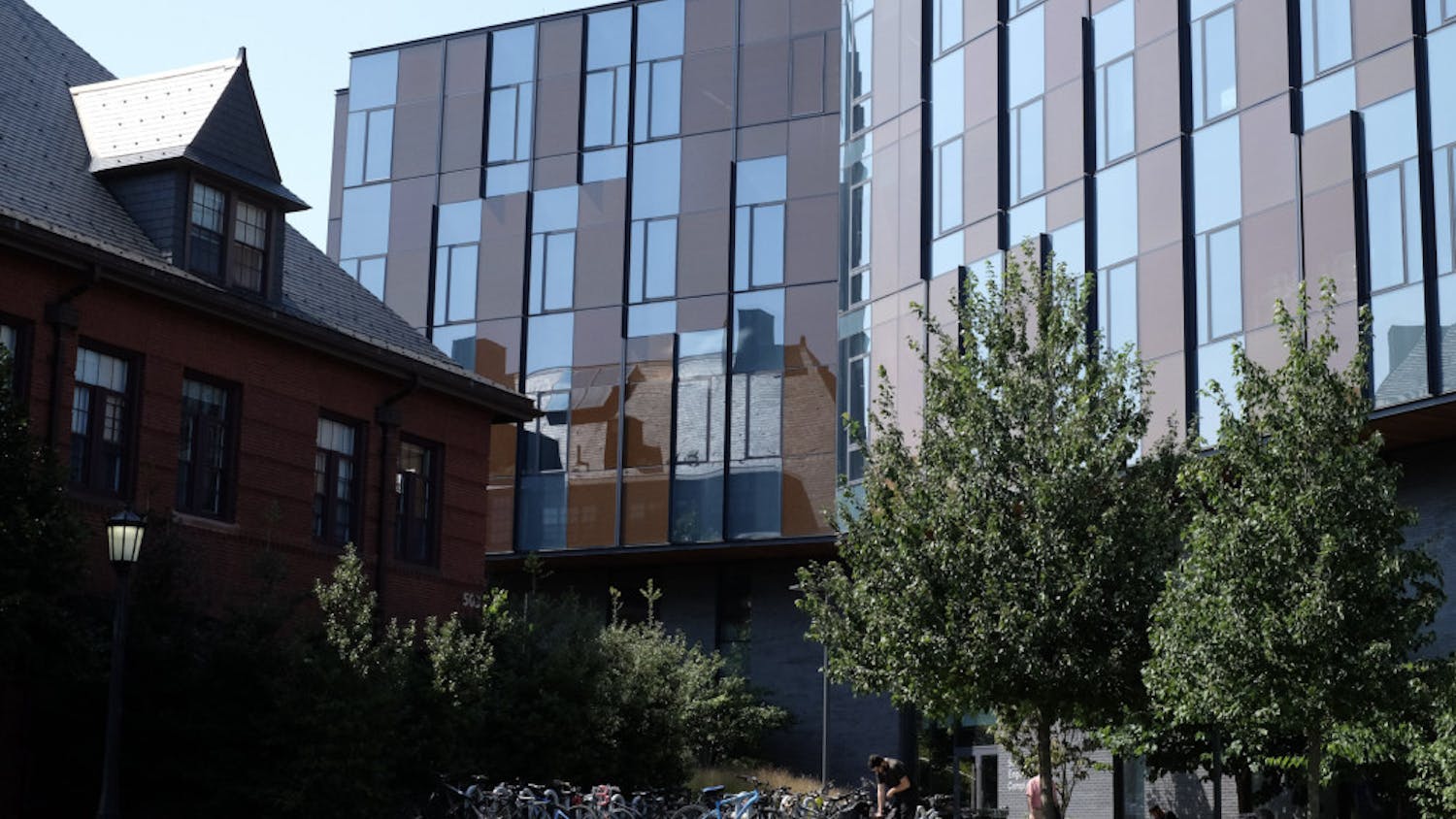After three years of million-dollar deficits and austerity, Dean of the School of Arts and Sciences James Glaser said that the School of Arts and Sciences (A&S) is projected to run a small surplus in the current fiscal year. However, every one of Tufts' other schools is projecting a deficit for this fiscal year.
The School of Engineering, the School of the Museum of Fine Arts at Tufts (SMFA) and the School of Medicine (TUSM) will all likely run deficits; the Friedman School of Nutrition Science and Policy and the Cummings School of Veterinary Medicine had more minor deficits last fiscal year, according to Thomas McGurty, Tufts' vice president for finance and the university’s treasurer.
The A&S, Tufts’ largest constituent school in terms of enrollment and revenue, ran deficits of $2.2 million in the last fiscal year that ended in June, $2.4 million the year before and $1.6 million in fiscal year 2017, Glaser wrote in an email statement to the Daily.
Glaser wrote that surpluses are projected to continue this year through fiscal year 2024.
The crux of A&S’s budget woes came from several building projects ranging from the Science and Engineering Complex and the Collaborative Learning and Education Complex to renovations of residence halls and Barnum Hall as well as rising financial aid costs.
Glaser also cited the new union contract with Tufts Dining workers’ union as a source of financial strain.
However, Glaser said that the sorry state of Tufts’ buildings was hamstringing faculty and student recruitment and that investment was critical.
“Your high school had better biology teaching laboratories than Barnum Hall had by a long shot,” Glaser told the Tufts Community Union (TCU) Senate in his Oct. 6 appearance before the body.
Paying for the upgrades required what Glaser dubbed a “period of austerity” during his talk with the senators.
Deepen Goradia, a TCU senator and chair of the administration and policy committee, raised the question of deficits with Glaser and expressed concern over the effect of the austerity measures on faculty hiring.
“Tufts is known for our academic prowess, mainly our professors, so two [new hires] is kind of sad,” Goradia, a sophomore, said.
Meanwhile, A&S is meeting its targets to increase undergraduate enrollment by 400 from 2018 to 2021, a strategy that has irked some of Tufts’ neighbors who say the influx of students will drive rents up.
Of all the schools, however, TUSM is deepest in the hole, having run a $7.3 million deficit last fiscal year and projecting a $6.4 million deficit this fiscal year.
The school does not operate a hospital as other medical schools do and thus does not employ practicing doctors who could bring in revenue and “philanthropy from grateful patients,” according to Harris Berman, the dean of the School of Medicine.
Berman wrote in a statement to the Daily that the major teaching hospitals which collaborate with the medical school, like Tufts Medical Center — which, despite the name, is not operated by the university — do not pay the school.
Lacking these revenue streams, the medical school is forced to rely on tuition and fundraising, which have not been able to keep up with costs.
Berman explained that the school has employed a series of austerity measures to get a handle on mounting expenses including reducing overall salaries and benefits, delaying merit pay increases until Jan. 1, 2020 and cutting two under-performing masters programs including the controversial Pain Research Education and Policy program that had close ties to opioid maker Purdue Pharma.
Berman also said that TUSM is also launching new online master’s programs in an effort to drive up revenues, which are far cheaper to operate than traditional courses.
When Tufts took control of the SMFA from the Museum of Fine Arts in 2016, it brought the SMFA’s chronic deficits with it. Tufts originally planned to have the financial situation at the SMFA under control by this fiscal year, but Glaser said that target has now been pushed back to 2022 as the school struggles with lower-than-expected enrollment and higher-than-expected financial aid and facilities costs.
In total, the school lost $5.5 million last fiscal year and is projected to lose $3.9 million more this year, according to Glaser.
Glaser said that the SMFA is still working to get enrollment back to capacity and to cut back on non-compensation expenses.
The School of Engineering, which balanced its books last fiscal year, is now projected to fall back into a $3.4 million deficit this year, according to a statement provided to the Daily by James Sarazen, the school’s executive administrative dean.
Sarazen wrote that the particulars of the agreement between the School of Engineering and the A&Ss regarding enrollment and cost-sharing are largely responsible for the deficit.
He added that securing grants and new online programs are key parts of the administration’s strategy to put the financials back on solid footing.
The budget deficits are caused in part by the university’s financial structure, in which a vast majority of the revenue comes in through the constituent schools. The schools are then “taxed,” as Glaser explained it, to contribute to the budget for university-wide services like the Tufts University Police Department and Tufts Technology Services.
About 15% of the A&S’s revenues go to the university budget, Glaser told TCU Senate.
“Tufts is actually even more decentralized than other places,” Glaser told the senators. “And it means you can have the university with a really tiny surplus and the schools with deficits.”
In fact, the Tufts’ overall budget has been in the black, at times narrowly, since at least the 2009 fiscal year and is projected to climb from $5.7 million this year to $28.9 million in 2024, according to a presentation Tufts University President Anthony Monaco gave on Oct. 25.
Despite this, McGurty said that the university expects all of the constituent schools to balance their budgets.
Arts and Sciences in surplus, but TUSM, SMFA remain in deficit

James Glaser, dean of the School of Arts and Sciences, poses for a portrait at Ballou Hall on June 12, 2014.





